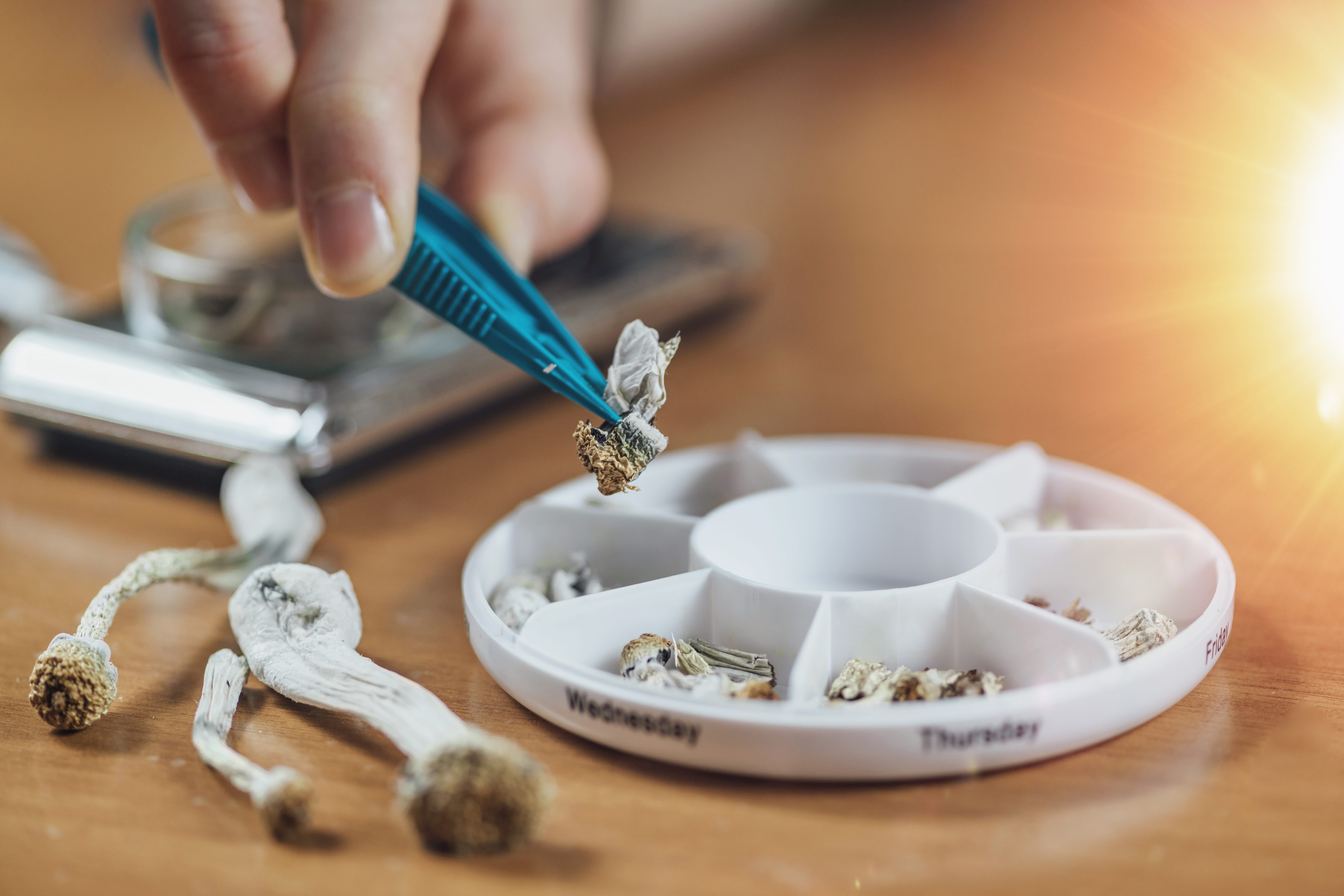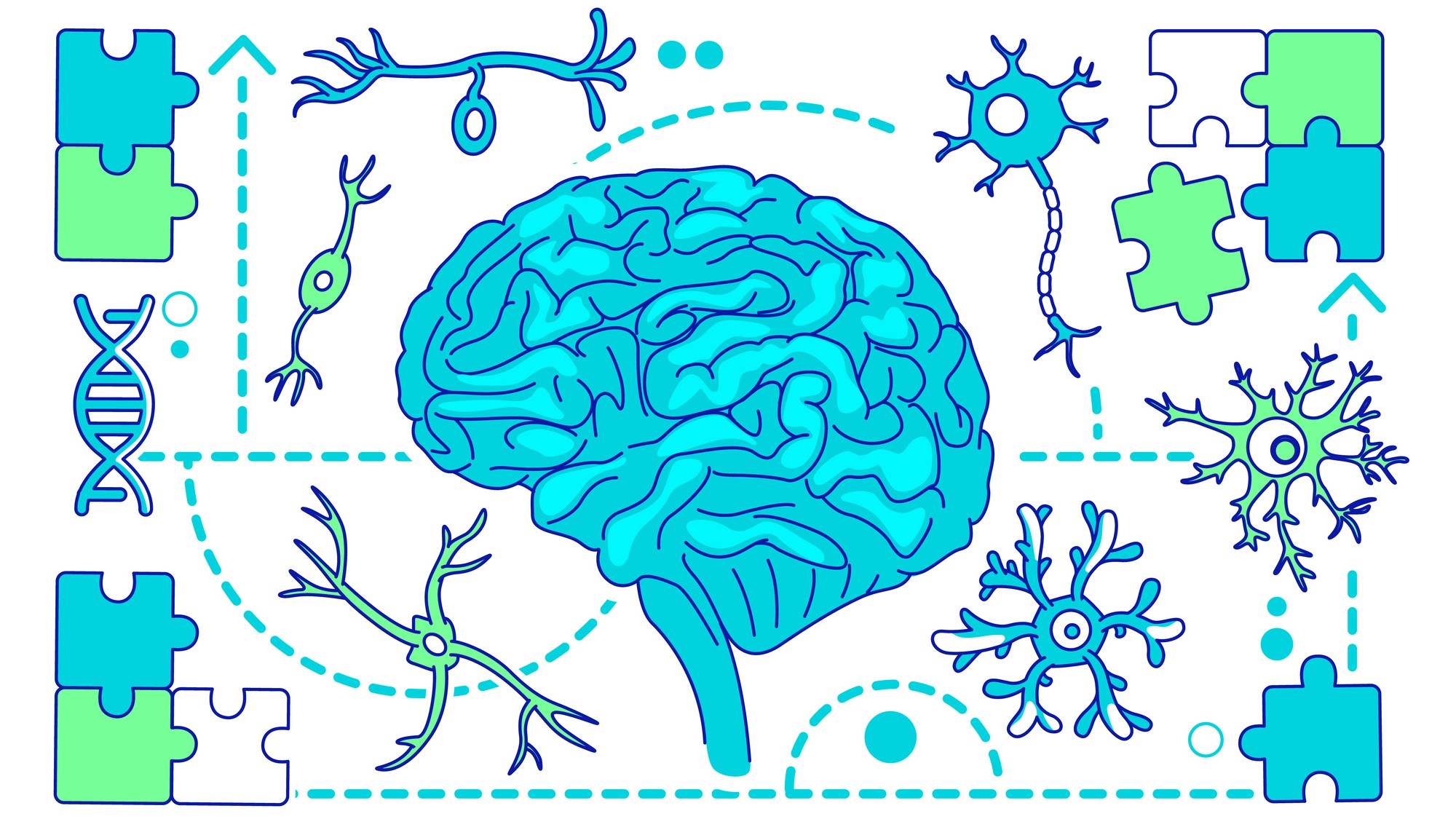The legal state of psychedelic therapy in the US
Is psychedelic therapy the next big thing in mental health treatment?


A free daily email with the biggest news stories of the day – and the best features from TheWeek.com
You are now subscribed
Your newsletter sign-up was successful
Psychedelic-assisted therapy may become more mainstream soon due to recent legislative efforts and promising research, offering an alternative for specific mental health conditions. It may be the "next big trend in mental health treatments," and experts say we can expect a rising buzz about the "emerging wellness trend" soon, per USA Today.
Dr. Matthew W. Johnson, a professor of psychiatry and behavioral sciences at Johns Hopkins and a psychedelics expert, has recently seen a "dramatic increase in interest" in the area and believes it's "only going to increase" over the next few years. The increase in clinical trials and legislative wins have led schools to focus on training future therapists and practitioners who will facilitate the sessions.
The U.S. Food and Drug Administration recently released new draft guidance, highlighting critical considerations for researchers interested in testing psychedelic treatments for various conditions, including PTSD, depression, and anxiety. This is the first time the agency has outlined trial conduct, data collection, and safety precautions for researchers studying psychedelics as medicine. The guidance covers prospective studies on "classic psychedelics," like psilocybin and LSD, or "entactogens" or "empathogens" like MDMA. The FDA filed the document two days after a bipartisan coalition in Congress led by Rep. Dan Crenshaw (R-Texas) introduced a bill that called for the agency to issue clinical trial guidelines for psychedelic-assisted therapy.
The Week
Escape your echo chamber. Get the facts behind the news, plus analysis from multiple perspectives.

Sign up for The Week's Free Newsletters
From our morning news briefing to a weekly Good News Newsletter, get the best of The Week delivered directly to your inbox.
From our morning news briefing to a weekly Good News Newsletter, get the best of The Week delivered directly to your inbox.
Is psychedelic therapy legal in the U.S.?
Psychedelics have been "staunchly outlawed" in most parts of the world and remained "culturally taboo and scientifically off-limits" for much of the last century, Webb Wright said in Double Blind Magazine. Classic psychedelics like mescaline, LSD, psilocybin and DMT have been classified as Schedule 1 substances by the U.S. Drug Enforcement Agency (DEA) since 1970, and MDMA, the synthetic psychedelic also known as ecstasy or molly, was added to the list in 1987. While they remain illegal on the federal level, "clinical trials, deprioritization and limited forms of state-level adult-use legalization have forged the first pathways for psychedelic therapy within the country," Wright added.
In 2017, the Food and Drug Administration granted Breakthrough Therapy status to MDMA-assisted therapy for PTSD and did the same the next year with psilocybin therapy for treatment-resistant depression. The designation is meant to expedite the process of gaining FDA approval. At the end of 2022, the American nonprofit Multidisciplinary Association for Psychedelic Studies (MAPS) completed a second phase-three trial on MDMA therapy for PTSD, a step widely considered the "last hurdle to clear" before applying for FDA approval, Time reported. Rick Doblin, MAPS' founder and executive director, said the group plans to apply for FDA approval based on the trial data, putting them on track for the drug to be approved as soon as 2024.
While several American cities have decriminalized personal psilocybin use, Oregon became the first state to legalize psilocybin use under strict supervision in 2020 and was followed by Colorado in 2022. Other states have proposed similar bills to legalize psilocybin, including California, Connecticut and New Jersey.
Oregon's Measure 109 took effect at the beginning of 2023, so many are looking at the state's program as a "real-world experiment" for psychedelic medicine. "One small hiccup: Oregon hasn't legalized psychedelic medicine," Grace Browne said in Wired. The law specifically permits "supported adult use" of psilocybin but does not require or even allow any medical referral. While people can legally trip in the presence of a licensed facilitator, Browne added, "psychedelic-assisted therapy it is not." Clients must sign a consent agreement that states they "understand that psilocybin services do not require medical diagnosis or referral and that psilocybin services are not a medical or clinical treatment."
A free daily email with the biggest news stories of the day – and the best features from TheWeek.com
The FDA-approved anesthetic ketamine falls in a lower category than other hallucinogenic drugs and is generally legal to prescribe throughout the country. While some might debate over whether an anesthetic counts as a psychedelic, its hallucinogenic properties are similar enough to psychedelic treatments to be considered in the same category. The FDA approved a ketamine nasal spray for treatment-resistant depression in 2018, and several companies operate ketamine therapy centers nationwide.
How does legalization compare to other countries?
On Feb. 3, Australia became the first country to recognize psychedelics for medicinal use legally after regulators announced that medicines containing MDMA or psilocybin could be used to treat PTSD and treatment-resistant depression in controlled settings. While some countries, like Jamaica and the Netherlands, already have legal psilocybin clinics and retreats, Australia is the first to offer it broadly as an approved medical treatment. While the Australian Therapeutic Goods Administration (TGA) has yet to approve any psychedelic-based medication, the organization says the reclassification will allow "authorized psychiatrists to access and legally supply a specified 'unapproved' medicine containing these substances to patients under their care for these specific uses."
Regulations in Canada, Israel and Switzerland allow clinicians to prescribe certain psychedelics in limited circumstances for patients with severe ailments. Ayahuasca, another hallucinogen anecdotally known for its therapeutic potential, is legal in Brazil, Costa Rica, Mexico and Peru, and retreats draw tourists from around the world.
Update June 26, 2023: This article has been updated throughout.
Theara Coleman has worked as a staff writer at The Week since September 2022. She frequently writes about technology, education, literature and general news. She was previously a contributing writer and assistant editor at Honeysuckle Magazine, where she covered racial politics and cannabis industry news.
-
 At least 8 dead in California’s deadliest avalanche
At least 8 dead in California’s deadliest avalancheSpeed Read The avalanche near Lake Tahoe was the deadliest in modern California history and the worst in the US since 1981
-
 Political cartoons for February 19
Political cartoons for February 19Cartoons Thursday’s political cartoons include a suspicious package, a piece of the cake, and more
-
 The Gallivant: style and charm steps from Camber Sands
The Gallivant: style and charm steps from Camber SandsThe Week Recommends Nestled behind the dunes, this luxury hotel is a great place to hunker down and get cosy
-
 Scientists are worried about amoebas
Scientists are worried about amoebasUnder the radar Small and very mighty
-
 Metal-based compounds may be the future of antibiotics
Metal-based compounds may be the future of antibioticsUnder the radar Robots can help develop them
-
 A fentanyl vaccine may be on the horizon
A fentanyl vaccine may be on the horizonUnder the radar Taking a serious jab at the opioid epidemic
-
 Nitazene is quietly increasing opioid deaths
Nitazene is quietly increasing opioid deathsThe explainer The drug is usually consumed accidentally
-
 Peanut allergies have plummeted in children
Peanut allergies have plummeted in childrenUnder the radar Early introduction could be an effective prevention method
-
 Can TrumpRx really lower drug prices?
Can TrumpRx really lower drug prices?Today’s Big Question Pfizer’s deal with Trump sent drugmaker stocks higher
-
 The UK’s opioid crisis: why the stats don’t add up
The UK’s opioid crisis: why the stats don’t add upThe Explainer A new report has revealed that the UK’s total of opioid-related deaths could be much greater than official figures show
-
 Human evolution may be responsible for autism rates
Human evolution may be responsible for autism ratesUnder the radar Neurodiversity and a complex brain may go hand in hand
